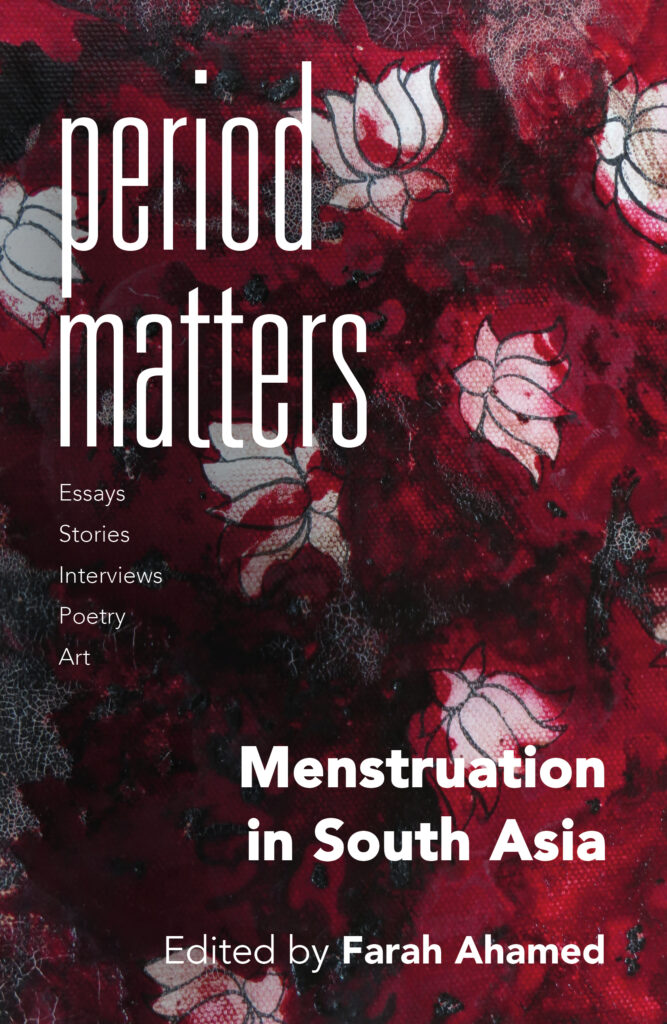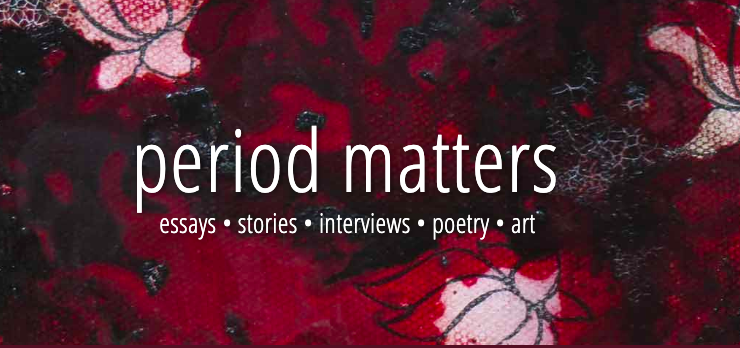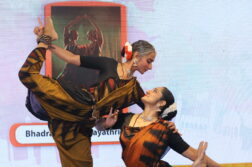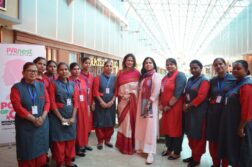For close to a decade, I have worked towards creating awareness about menstruation and menstrual hygiene, especially among the marginalised sections of society, through my trust Women Endangered (WE). WE initiated the campaign #LetsTalkPeriod to address issues related to gender equity and sustainability. I organise menstrual hygiene sessions especially designed for the Indian Subcontinent taking into consideration socio-cultural as well as climatic and geographical nuances. Our sessions have reached out to thousands of women and girls across urban slums, urban offices and educational institutions in the past few years.
So I was very curious to read Period Matters: Menstruation in South Asia (Pan Macmillan India, Rs 599), a collection of essays, artwork, stories and poems from voices as diverse as policymakers, entrepreneurs, artists, academics and activists about how menstruation is experienced in South Asia.
Edited by human rights lawyer and writer Farah Ahamed, the anthology is backed with diligent research, including painstaking interviews of those at the margins. Wrapped in the folds of her silken words, Ahamed expresses the raw emotions of a woman – any woman, from a convict to a nun, a sweeper to a corporate honcho – wondering What if? as her poem of the same title questions.
Ahamed’s initiative Panties with Purpose, which was the genesis of the book, had me hooked with the name itself. Working in the development sector, I have often noticed that most outreach programmes that are impactful are driven by individuals who are extremely passionate about the subject owing to either a personal experience of being a close witness to the issue. This individual’s passion seeps through each of the project’s endeavours, even a seemingly innocuous line of communication.
I hope Ahamed’s initiative, which she launched along with her sisters, continues to be fueled with the passion that she so naturally brings into this anthology, which includes essays by well-known voices from across the region including author-politician Shashi Tharoor, poets Tishani Doshi and Rupi Kaur, activist Granaz Baloch, Menstrupedia founder Aditi Gupta, actor-author Lisa Ray, and globally renowned artist Anish Kapoor among many other names who may not make it to the mainstream.

While I was aware of much of the narrative of the book due to my own work, a lot of it has been an eye-opener. Menstruation is a taboo topic in South Asia and there are many myths and superstitions around it – from restrictions on movement and food, to unscientific views on hygiene – but the fact that this runs through geographies across Afghanistan, Nepal, Bhutan, Sri Lanka, Bangladesh, and Pakistan amidst other countries of the West is indeed alarming.
The socio-cultural settings may differ, there is a lowest common denominator that binds them all rooted in misogyny. The same menstrual tradition of isolation at the onset of menarche becomes kotahalu mangalaya in Sri Lanka(‘Menstruation Traditions and Practices in Sri Lanka’) and manjal nir vizah in Tamil Nadu (‘Behind the Braided Coconut Leaves’).
“In Northern European visual culture, menstruation has been considered ‘dirty, disgusting and embarrassing’ and thought to cause an imbalance in taste in Japan,” shares Alnoor Bhimani in her essay ‘Digitising Menstruation’, where she enunciates the threat to privacy with Period Tracking Apps (PTAs). “Advertisers monitor consumers’ moods and desires to make product offerings at times when PTA users are most likely to make purchases.”
Marketing products, superseding the authenticity of the claims isn’t a surprise when the narrative to ‘Whisper’ is the biggest challenge to overcome the taboo. But the fact is that ‘biodegradable’ and ‘organic’ are the most abused words in the feminine hygiene sector as explained by Jaydeep Mandal in the essay ‘Anandi: India’s First and Only Certified Compostable Pad’.
For a product to be sustainable, what really matters is its composting capacity. As my friend Malini Parmar, eco-activist, engineer and founder of stonesoup.in, often says, just put the item in the composting bin where even animal bones disintegrate in 90 days. You will be surprised to see some of the ‘biodegradable’ products still intact.
Read Also: Menstrual Cup for Sustainable Menstruation
While Ahamed covertly weaves in menstruation in narrating the tale of forgotten girls living on the fringes of a religious shrine through her acclaimed short story ‘Hot Mango Chutney Sauce’, the piece ‘Raqs-e-Mahavaari’enthralls with Amna Mawaz Khan’s overt expression of the monthly cycle through her Bharatanatyam choreography and an equally beautiful depiction of its genesis.
Pakistani transperson Javed (name changed) elucidates the plight of transgenders even linguistically in an interview to Ahamed titled ‘The Worst Day of My Life: Menstruation and Dysphoria’. He points out that, unlike English and other European languages, Urdu and Punjabi (Hindi and Sanskrit too for that matter) do not denote a gendered identity like he/she or him/her. He shares, “As the upper and middle class aspired to become more like the British, they adopted their attitudes and their prejudices… everyone wants to be a kala Angrez.”
During the infamous episode in the epic Mahabharata when Draupadi is forcibly disrobed in a hall full of men, she pleads that she is going through her period or Rajasvala. Author Shashi Deshpande through her essay ‘Menstrual Matters’ highlights this mention in a revered ancient scripture, hinting that the subject was not taboo to begin with.
Shashi also broaches the topic of the Sabarimala controversy. In 1991, the High Court of Kerala banned the entry of women of menstruating age to the Sabarimala Ayyappa temple. In 2018, the Supreme Court of India overturned this ban and allowed women of all ages to enter. However, due to local opposition, women of menstruating age continue to be denied entry into the shrine.
Matters of faith are often misconstrued depending on the context. I wonder, won’t the question of allowing women to worship a celibate male deity in opposition to the faith associated also lead to questioning other Indian temples of menstruating goddesses where men (even male priests) are not allowed to enter?
From Goonj to Menstrupedia, Radha Paudel foundation in Nepal to Bhutan Nuns Foundation, the book highlights many nonprofits and social enterprises addressing problems on ground in remote and urban clusters across South Asia. These include education on menstrual hygiene and reproductive health, providing access to feminine hygiene products and constructing infrastructural support such as access to toilets.
Mariam Siar shares that as of 2019 (before the Taliban regime took over), 94 percent schools lacked even basic hand-washing facilities with soap and water in Afghanistan. The book further highlights the progress of the Menstrual Rights Bill in India as well as the normalisation of paid period leaves.
The book’s cover has a story of its own. The process of its creation is shared by artist Lyla Freechild in ‘Adhya Shakti’ or Primal Energy. Lyla describes her experience of visualising and creating it using her own menstrual blood, which she had been harvesting. I must admit this idea was a bit discomforting, even for me.
All in all, the book is a mind-opening read. Given my work at WE towards creating awareness on menstrual hygiene, busting myths, affecting behavioural change across socio-economic strata, as well as crowd-sourcing funds to distribute medical-grade silicone menstrual cups in urban slums for close to a decade, my only grouse is that it was not included in this illustrious anthology. WE will strive harder!
Suparnaa Chadda is a Delhi-based media entrepreneur. She is a founder trustee of womanendangered.org and the founder of the SABERA awards.
Reviewed for and published originally in eShe.in





